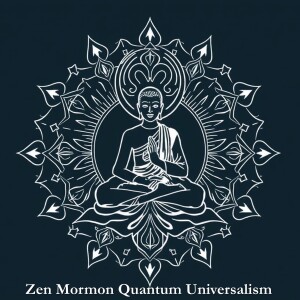
Saturday Jun 07, 2025
Analysis of Paradox in "The Book of Cosmic Abundance"
Abstract: This analysis explores the strategic use of paradox in "The Book of Cosmic Abundance, Chapter 9: The Revelation of Worlds Without Number," demonstrating how seemingly contradictory concepts are deliberately employed to convey spiritual truths that transcend conventional dualistic thinking. The examination identifies five core paradoxes—cosmic significance (humanity's simultaneous smallness and vastness), form and emptiness (material separation versus underlying unity), holographic relationship between part and whole, temporal events versus eternal principles, and individual versus universal identity—showing how each functions not as a logical contradiction to be resolved but as a koan-like invitation to direct spiritual experience. These paradoxes serve multiple functions: transcending either/or thinking, bridging diverse traditions (Zen Buddhist emptiness, Mormon cosmology, and quantum physics), acknowledging the limitations of language and conceptual frameworks, and creating cognitive openings for deeper understanding. Ultimately, the chapter's paradoxical expressions reflect ZMQU's fundamental approach to spiritual truth—embracing both scientific discovery and contemplative wisdom while maintaining epistemological humility before cosmic mysteries that exceed conventional comprehension.
No comments yet. Be the first to say something!